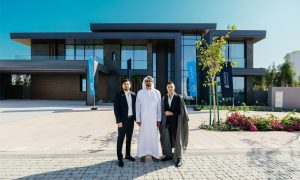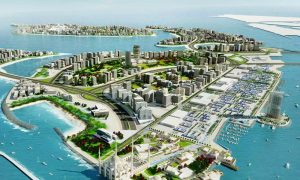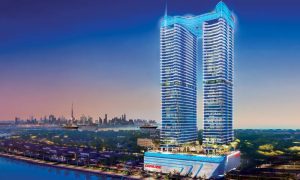Tamweel Tower fire safety systems questioned
Residents question the effectiveness of the fire safety systems in place

Residents of Tamweel Tower in Jumeirah Lakes Towers have slammed the fire safety systems in place after a massive blaze caused major damage to the apartments on the upper floors of the building.
Accusations about the reliability and effectiveness of the fire safety systems have rise, with residents claiming that fire hoses and sprinkler systems failed to work as the fire raged for over six hours, completely destroying the top floors of the building, including the swimming pool, gymnasium and children’s play area.
Initial reports suggest that flammable cladding material used in the building was responsible for spreading the blaze so quickly, however the Civil Defence of Dubai was yet to confirm this.
However, Stephen Lipscombe, senior manager, Technical and QA/QC for Emirates Glass and a fire safety expert, said that aluminium cladding has a history of being extremely flammable and a common cause of high-rise tower fires.
“5,000m2 of aluminium cladding with polyurethane contains just as much benzene as a refill truck going to a petrol station,” he said. “We have pictures of buildings out here where the glass has stayed intact, but the aluminium cladding, which self-combusts at 500°C, has burnt up, across and back down and the building is ablaze from outside,” he explained to Big Project ME.
In a statement released to the media, Tamweel said that it was cooperating fully with the authorities and was providing assistance to affected residents.
“We will continue to work closely with the Civil Defence, and remain wholly focused on the safety and well-being of the residents and staff,” it said in the statement.
“Our very highest priority is the safety and well-being of the owners and residents,” said Varun Sood, acting chief executive officer at Tamweel. “Our staff are on site and have provided transportation and hotel accommodation, in coordination with DMCC, to any resident who requires such assistance. We will continue to work with the Building’s Owner Association to assist all residents and we remain fully committed to ensuring their well being,” he explained.
Lipscombe pointed out that there needed to be increased cooperation between the three concerned sectors, so as to ensure that best practices are met and workers installing equipment are properly educated on fire safety and systems.
“The ideal scenario should be three pronged: It would be government commitment in terms of its organs like civil defence, planning and building inspectors (investigating systems), industry commitment where cheap products (are forgotten) and we strive to be ISO and upwards in terms of standards and community.”
“That’s what it boils down to, whether it’s safety of the fire protection or the safety of the system that goes in it. We’re dealing with other people’s families, and I think we have a moral responsibility,” he explained.
























